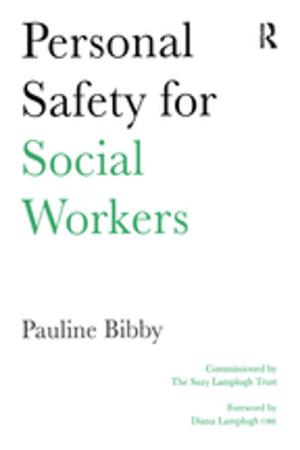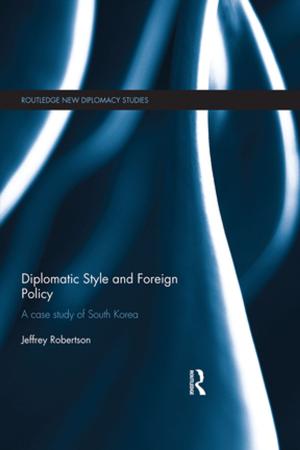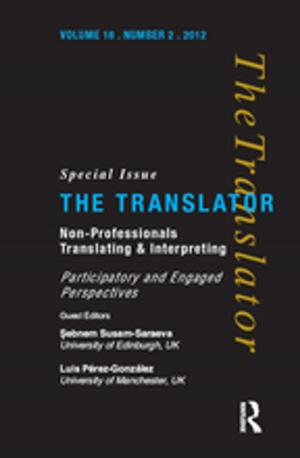Security Strategy and Transatlantic Relations
Nonfiction, Social & Cultural Studies, Political Science, International, International Security| Author: | ISBN: | 9781134143603 | |
| Publisher: | Taylor and Francis | Publication: | September 27, 2006 |
| Imprint: | Routledge | Language: | English |
| Author: | |
| ISBN: | 9781134143603 |
| Publisher: | Taylor and Francis |
| Publication: | September 27, 2006 |
| Imprint: | Routledge |
| Language: | English |
In this much-needed study of current strategic thinking on both sides of the Atlantic, a diverse collection of leading European and American analysts are assembled to tackle key questions that remain unanswered in the existing literature:
- how much do new security strategies signal convergence or divergence in US and EU foreign and security policy doctrine?
- what tangible political and policy impacts can be attributed to new security strategies?
- what are the implications for US and EU policies towards specific regions?
- what are the prospects for collective transatlantic action?
The legacy of 9/11 is scrutinized against the backdrop of the strategic thinking that preceded it. In the 1990s, the US struggled to develop a new doctrine for American foreign policy, seeking at various times to promote a ‘New World Order’ or ‘democratic enlargement’. For its part, the EU had tried to underpin its new Common Foreign and Security Policy with a coherent set of ‘European values’ – multilateralism, human rights, environmental protection, and poverty reduction – that were best defended via collective European action. Key continuities and changes in these transatlantic efforts since 9/11 are clearly identified and closely examined.
In this much-needed study of current strategic thinking on both sides of the Atlantic, a diverse collection of leading European and American analysts are assembled to tackle key questions that remain unanswered in the existing literature:
- how much do new security strategies signal convergence or divergence in US and EU foreign and security policy doctrine?
- what tangible political and policy impacts can be attributed to new security strategies?
- what are the implications for US and EU policies towards specific regions?
- what are the prospects for collective transatlantic action?
The legacy of 9/11 is scrutinized against the backdrop of the strategic thinking that preceded it. In the 1990s, the US struggled to develop a new doctrine for American foreign policy, seeking at various times to promote a ‘New World Order’ or ‘democratic enlargement’. For its part, the EU had tried to underpin its new Common Foreign and Security Policy with a coherent set of ‘European values’ – multilateralism, human rights, environmental protection, and poverty reduction – that were best defended via collective European action. Key continuities and changes in these transatlantic efforts since 9/11 are clearly identified and closely examined.















